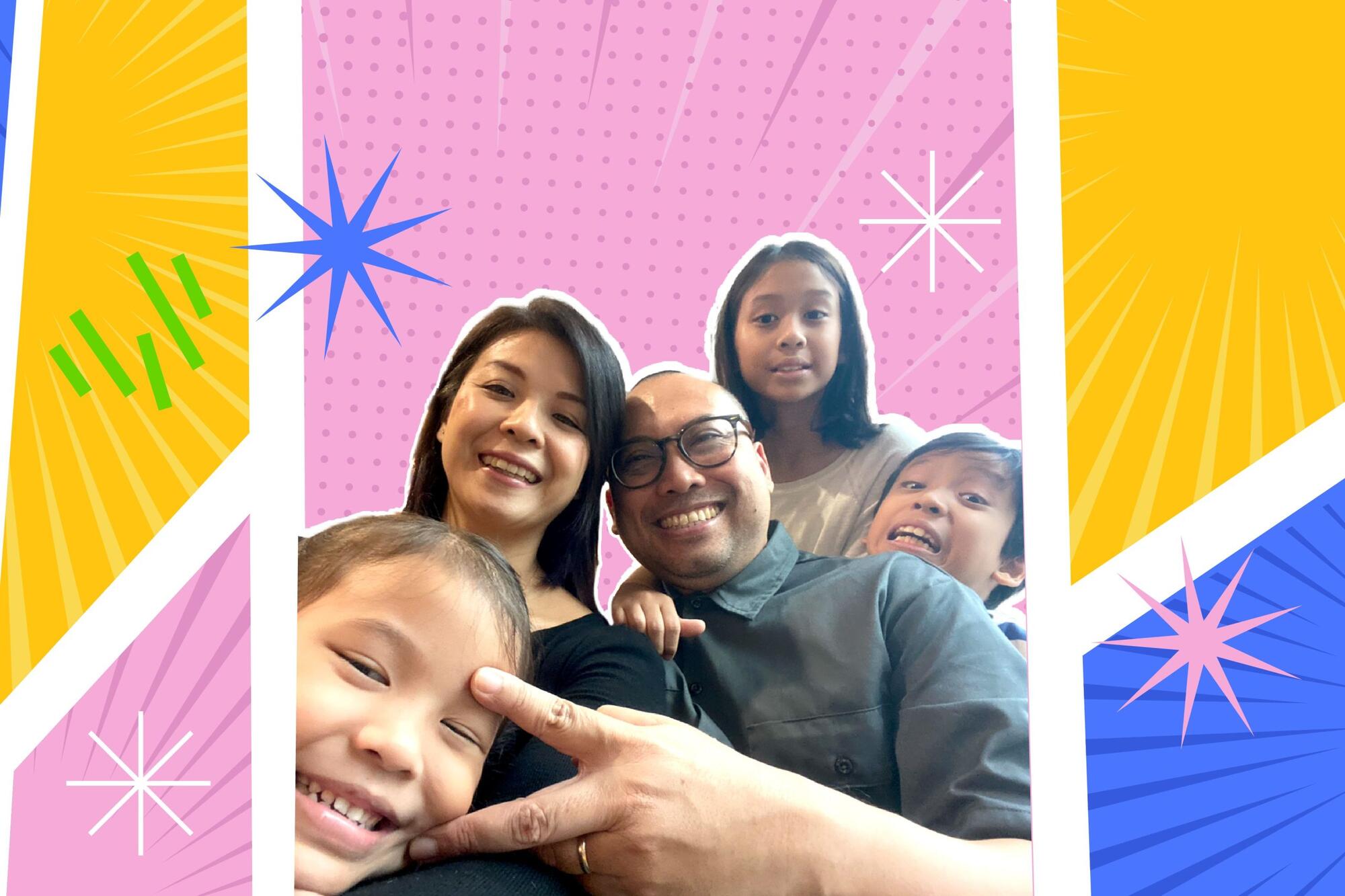Four things I tell my daughter to ensure she finds work in the future
02 Aug 2023
.jpg)
HR professional Joanna Yeo is raising a teenager to be ready for the workplace, using insights about the future of work that she gained from over 20 years on the job.
HR professional and mum-of-one Joanna Yeo is preparing her 15-year-old daughter for a future with jobs that don’t even exist today, in a reality that will look very different from ours.
Armed with more than two decades of human resource experience spanning the public and private sectors, from startups to MNCs, Ms Yeo knows what makes a good performer and leader in the workplace.
“You’d be surprised, it’s not always those that do conventionally well, or come from top schools, who stand out the most,” says Ms Yeo. And as the world of work changes quickly, intrinsic skills will become more valuable than job-specific skills.
Here’s what she learned of top performers at work:
1. Perfection can be limiting
While it’s important to pay attention to detail, Ms Yeo suggests that sometimes, the quest for perfection can hold a person back from getting ahead.
She learned this the hard way, from her own experience at work as a young recruit: “I was asked to represent the Singapore office in a global meeting, and the very first year I went, I was cautious and didn’t speak up much. The feedback about my performance was unanimous that I was too reserved and didn’t perform well.”
“My boss sent me to the same meeting the next year and I was determined not to make the same mistake. So I made it a point to raise my hand first whenever there was a call for opinions – and I did so even when I had not formed my thoughts perfectly or completely,” she recounts with a chuckle. “It absolutely worked. This time round, the feedback on my performance was outstanding.”
This is why she encourages her new hires to not shy away from updating their managers on the progress of their work, or share more openly at discussions – and to not always have to wait till all points are considered and all goals are met. A proactive attitude and openness to feedback can also render better results.
She encourages her daughter to do the same. “I always tell her to just try her best, and not worry about the outcome. Waiting for everything to be 100% perfect can hold you back.”
2. Know how to read the room
When it comes to making an impression, being bold isn’t the only thing that matters either.
“It’s also very important to know how to read the tone in the room and adjust what you say and how you say it, accordingly,” Ms Yeo says. “It’s that ability to engage.”
Ms Yeo remembers an incident clearly, where two presenters at a global meeting received very different feedback from the audience.
One of the presenters was more highly rated in terms of actual work performance “but you wouldn’t have known it from the presentation!” Ms Yeo says. “The other presenter just had that certain finesse in addressing the audience and an innate ability to connect with them.”
How can this be translated into something a child can understand? Firstly, “we can teach our kids to take a step back and look at the bigger picture and understand how different pieces work together”. Just because you are tasked to make a presentation, doesn’t make it all about the deck of slides or the volume of the mike – there is the bigger ask of winning over the audience.
Ms Yeo likes how her daughter learned this idea of a bigger picture from one of her teachers. She had marked her composition not just at grammar or sentence level, but also gave comments on the whole piece, with phrases like “I liked how you developed the story of the main character” and “Your conclusion had such an unexpected ending, good job!”
Following that, parents can encourage their children to pursue activities that promote interaction – which often translates into not focusing on grades but on less tangible skills like perceptiveness and social awareness. “Culturally, Singaporeans don’t tend to speak up as much,” she explains, and this can hold us back from making a good impression, networking or building relationships.
Ms Yeo remembers that her daughter wasn’t quite as confident or outspoken when she was younger, but she never gave up encouraging her to practise her social skills with friends and adults alike.
“One day she just decided she wanted to run for student council, which took me by pleasant surprise! Since then, she’s grown from strength to strength in developing as a leader; she is now a prefect and really enjoys having the opportunities in her school to learn about leadership first-hand from experience, and from leadership seminars,” she says.
All this adds up when “cultivating that elusive quality of being able to read the nuances in the room, since we can zoom out and read between the lines with more context and perspective”.
3. See failure as a stepping stone, not a roadblock
Job and sector disruptions will become more frequent than before, as technology constantly shifts how society functions.
Roles that seemed impossible to be replaced before, such as survey takers and call centre operators, have been replaced by chatbots and other forms of AI, says Ms Yeo, adding, “Of course, humans still oversee the later, more complex stages of work processes, but the first cut can now be replaced by technology.”
For this reason, it is important to be able to go with the flow, pivot quickly, and see failure as a learning curve instead of a roadblock. She notes that top candidates across the companies she has hired for demonstrate agility in their mindset and are unafraid of failure.
Ms Yeo remembers the very first history exam her daughter sat for when she was in Secondary 1, which she barely passed. “She was horrified!” says Ms Yeo, chuckling. “But I encouraged her to ask her teacher where she went wrong, so that she can troubleshoot and hopefully improve for her next one. I wanted to nurture that mindset in her that failure shouldn’t get her down, and instead she should see it as an opportunity to improve herself and get ahead.”
4. Kindness is the future
If there were one thing that separates the good from the great employee, it’s kindness, says Ms Yeo.
“What I have realised over the years is that it is those who are likeable, have lots of friends, and are kind people, who always manage to land a job first.” She notes that this applies even in competitive societies like Singapore, where one might be excused for thinking that proven skills and gleaming track records matter more.
Kind people are also the ones Gen Zs like to work with. The younger set care about their life’s purpose and sound values, and would not hesitate to leave a job because their boss is perceived to be “inauthentic or unkind”; “this is revealed during exit interviews, so we have quantitative data on this across industries”, says Ms Yeo.
So if this were the only quality her daughter would be judged on for a job, Ms Yeo muses that she will certainly find work in the future.
“My daughter isn’t the top student or anything like that, yet teachers always pair the weaker students with her, because she is caring, helpful, and willing to share,” says Ms Yeo with pride. “Her report book comments usually highlight qualities like her integrity, her sense of responsibility, and her kindness – more than grades, this is a valuable achievement to me.”





